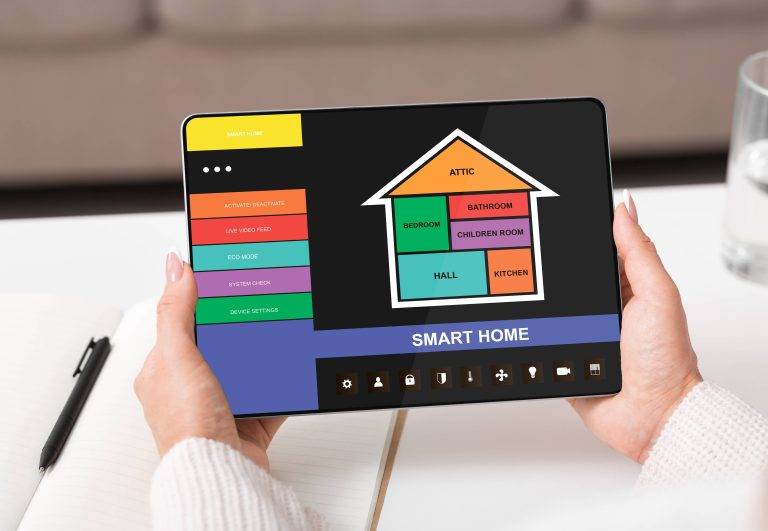
The smart home industry has evolved at an unprecedented pace over the past decade. From voice-controlled assistants to automated lighting systems, we’re witnessing leaps in technology that are making our homes more integrated, efficient, and convenient. As we look forward to 2025, it’s thrilling to anticipate what kind of advanced gadgets will dominate the market. Today, we’re diving into the top smart home gadgets of 2025 that promise to revolutionize our living spaces.
1. Next-Gen Smart Hubs
The smart hub is the brain of any connected home, and by 2025, smart hubs will have evolved significantly. Forget about needing individual apps for each device. The latest smart hubs will control everything from lighting, security, and entertainment systems to household appliances, all from a singular, intuitive interface. The most advanced hubs will feature AI capabilities that learn and adapt to your routines over time, ensuring optimal efficiency and ease of use in managing your home.
These next-gen smart hubs will integrate seamlessly with AR (Augmented Reality) and VR (Virtual Reality) technologies, providing holographic interfaces that can be controlled with gestures and voice commands. Imagine adjusting your room’s lighting through a simple hand gesture in mid-air or issuing a voice command to your virtual assistant while seeing their response right in front of you in 3D.
2. Smart Kitchen Appliances
2025 is set to be the year when our kitchens become the epitome of smart convenience. Smart ovens, refrigerators, dishwashers, and coffee makers will be equipped with even more robust AI technology. These appliances will communicate with each other to ensure your cooking process is seamless. Smart ovens will have integrated computer vision to recognize the food and recommend optimal cooking times and temperatures.
Refrigerators will go a step further by not just tracking the freshness of food but also using integrated health data to recommend meal plans based on your dietary needs. Imagine your refrigerator suggesting a recipe, then your smart oven syncing with it to preheat at the perfect temperature, and your counter assistant projecting step-by-step instructions in AR.
3. Enhanced Home Security Systems
Home security will see remarkable advancements by 2025, ensuring our houses are safer than ever before. AI-powered surveillance cameras with facial recognition will become standard, not just identifying intruders but also performing analytics to recognize and track suspicious behaviors in real-time. These systems will be integrated with drone technology, providing aerial surveillance and more comprehensive security coverage for larger properties.
Moreover, smart locks will evolve to feature multi-layered biometric authentication, including fingerprint, voice recognition, and even heartbeat patterns. This ensures an unparalleled level of security for accessing your home. As an added convenience, these locks will communicate with your smart home system to perform actions like arming the security system or turning on exterior lights when you leave or return home.
4. Advanced Climate Control
By 2025, smart thermostats will have transformed into holistic climate control systems. These devices will go beyond merely regulating temperature; they’ll be capable of controlling humidity, air purification, and ventilation based on real-time air quality data and personal comfort preferences. AI algorithms will continuously learn and adapt to your routines and preferences, providing optimal comfort while maximizing energy efficiency.
Integration with weather forecast services will allow these systems to preemptively adjust indoor conditions based on predicted weather changes. Additionally, smart windows with adjustable tinting will work alongside these climate control systems to manage natural light and heat, reducing the need for artificial heating and cooling.
5. Smart Health Monitors
One prominent area where smart technology is making waves is health. By 2025, your home itself will act as a health monitoring system. Smart mirrors equipped with health sensors will be able to conduct basic health assessments by analyzing your skin, eyes, and other biomarkers.
Smart toilets will also play a critical role, analyzing waste to provide insights into your digestive health, hydration levels, and overall well-being. These insights will be integrated with wearable health gadgets and stored in a comprehensive health database, accessible to you and your health professionals for real-time monitoring and personalized healthcare advice.
6. Interactive Smart Entertainment
The entertainment sector is not left out in this whirlwind of innovation. By 2025, our home entertainment systems will be more immersive and interactive than ever. Smart TVs will utilize advanced AI to recommend personalized content based on your viewing habits and integrate seamlessly with other devices in your home.
Gaming systems will leverage AR and VR technologies to create immersive experiences that transcend the traditional screen, turning your living room into an interactive playground. Expect holographic displays, tactile feedback systems, and even scent generators to create a truly multi-sensory entertainment experience.
7. Sustainable Smart Solutions
Sustainability will be a core focus in 2025 smart home innovations. Solar panels and home batteries will be smarter, integrating with home energy management systems to optimize energy usage based on peak hours and energy availability. Intelligent water management systems will reduce wastage by detecting leaks and monitoring consumption patterns.
Smart composting and waste management solutions will become prevalent, converting organic waste into usable compost or energy. These systems will not only promote sustainability but also reduce the environmental footprint of your household.
Conclusion
The future of smart home gadgets in 2025 is full of promise and excitement. From advanced AI-driven hubs to immersive entertainment systems and sustainable solutions, the possibilities are boundless. As these technologies become more integrated into our daily lives, our homes will not only become more efficient and convenient but also safer, healthier, and more environmentally friendly.
These innovations will continue to evolve, reshaping the way we interact with our living spaces and setting new standards for what a smart home can be. The journey to this futuristic living starts today, and we can’t wait to see these technological marvels unfold in the coming years. So, get ready to welcome a smarter, more connected home in 2025!







